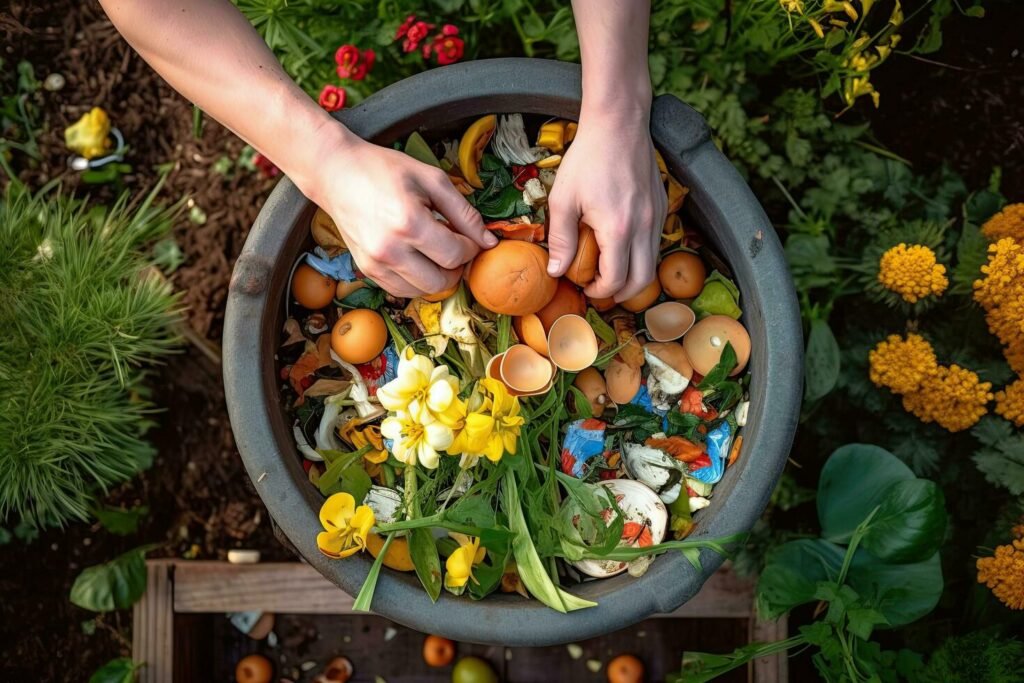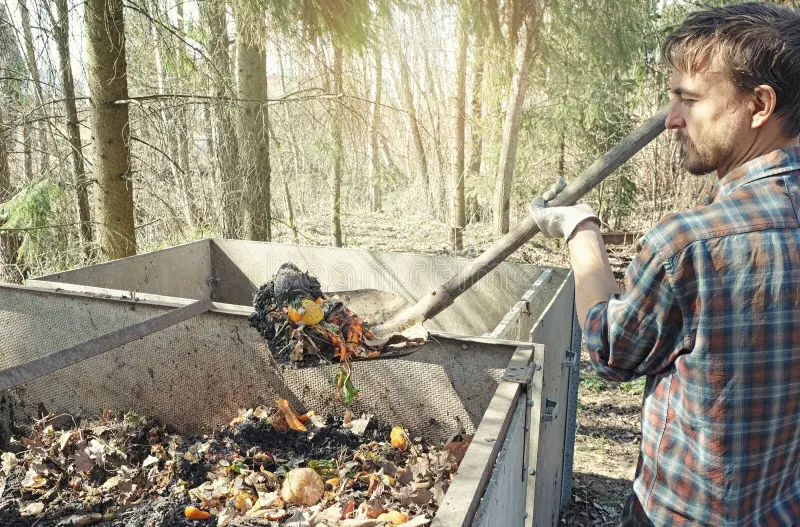In the modern world, where environmental concerns are at the forefront of our minds, finding sustainable solutions to manage waste is crucial. Composting, the process of turning organic waste into nutrient-rich soil, is a simple yet powerful way to reduce our environmental footprint while creating a valuable resource for our gardens. One of the easiest ways to start composting is by utilizing kitchen waste. In this guide, we’ll explore how you can turn your kitchen scraps into “black gold” for your plants.
Why Compost Kitchen Waste?
Kitchen waste, which includes fruit and vegetable scraps, coffee grounds, eggshells, and more, makes up a significant portion of household waste. Instead of sending these leftovers to the landfill where they contribute to greenhouse gas emissions, composting allows us to harness their potential by transforming them into a nutrient-rich soil amendment. Not only does composting kitchen waste reduce methane emissions from landfills, but it also helps improve soil structure, retain moisture, and provide essential nutrients for plants.
Getting Started
Composting kitchen waste is a straightforward process that requires minimal equipment and space. Here’s how to get started:
1. Choose a Composting Method:
- Bin or Pile: You can compost kitchen waste in a dedicated compost bin or simply create a pile in your backyard. Choose a method that suits your space and preferences.
- Indoor Composting: If outdoor space is limited, consider indoor composting options such as worm bins or Bokashi composting systems.

2. Collect Your Kitchen Waste:
- Save your fruit and vegetable scraps, coffee grounds, tea bags, eggshells, and other organic materials in a countertop container or designated compost bin.
- Avoid adding meat, dairy, and oily foods to your compost pile, as they can attract pests and slow down the composting process.

3. Layer and Moisturize:
- As you add kitchen waste to your compost bin or pile, layer it with “brown” materials such as dried leaves, straw, or shredded newspaper. Brown materials provide carbon, which helps balance the nitrogen-rich kitchen scraps.
- Keep your compost pile moist, but not soggy, by watering it occasionally. Moisture is essential for the composting process to occur.

4. Turn and Maintain:
- To accelerate decomposition and ensure proper aeration, periodically turn or mix your compost pile using a pitchfork or shovel. This helps distribute oxygen and encourages microbial activity.
- Monitor the moisture level and adjust as needed. If your compost pile becomes too dry, add water. If it’s too wet, mix in additional dry materials.
Troubleshooting Tips
While composting kitchen waste is relatively simple, you may encounter challenges along the way. Here are some common issues and how to address them:
- Foul Odors: Properly aerating and balancing your compost pile can help prevent unpleasant odors. Avoid adding large quantities of odor-causing materials such as meat or dairy, and ensure your compost pile is adequately ventilated.
- Pest Problems: If your compost pile attracts pests such as rodents or flies, avoid adding food scraps that are likely to attract them. You can also cover your compost pile with a layer of browns or use a secure compost bin to deter pests.
- Slow Decomposition: If your compost pile is taking longer than expected to break down, it may lack sufficient moisture, oxygen, or a balanced ratio of greens to browns. Adjust these factors as needed to speed up the composting process.

Harvesting Your Compost
With time and patience, your kitchen waste will transform into dark, crumbly compost that resembles rich soil. Depending on factors such as temperature, moisture, and the size of your compost pile, this process can take anywhere from a few weeks to several months. When your compost is ready, it will have a earthy smell and be teeming with beneficial microbes.
To harvest your compost, simply scoop it out of your compost bin or pile and use it to amend your garden soil, potting mix, or as mulch around your plants. Your plants will thank you for the nutrient boost, and you’ll have the satisfaction of knowing that you’ve closed the loop on your kitchen waste, turning it into valuable “black gold” for your garden.
Conclusion
Composting kitchen waste is a simple and rewarding way to reduce waste, enrich your soil, and contribute to a more sustainable future. By following these steps and troubleshooting tips, you can turn your kitchen scraps into nutrient-rich compost that will nourish your plants and benefit the environment. So, roll up your sleeves, gather your kitchen waste, and start composting today. Your garden—and the planet—will thank you for it.


Leave A Comment